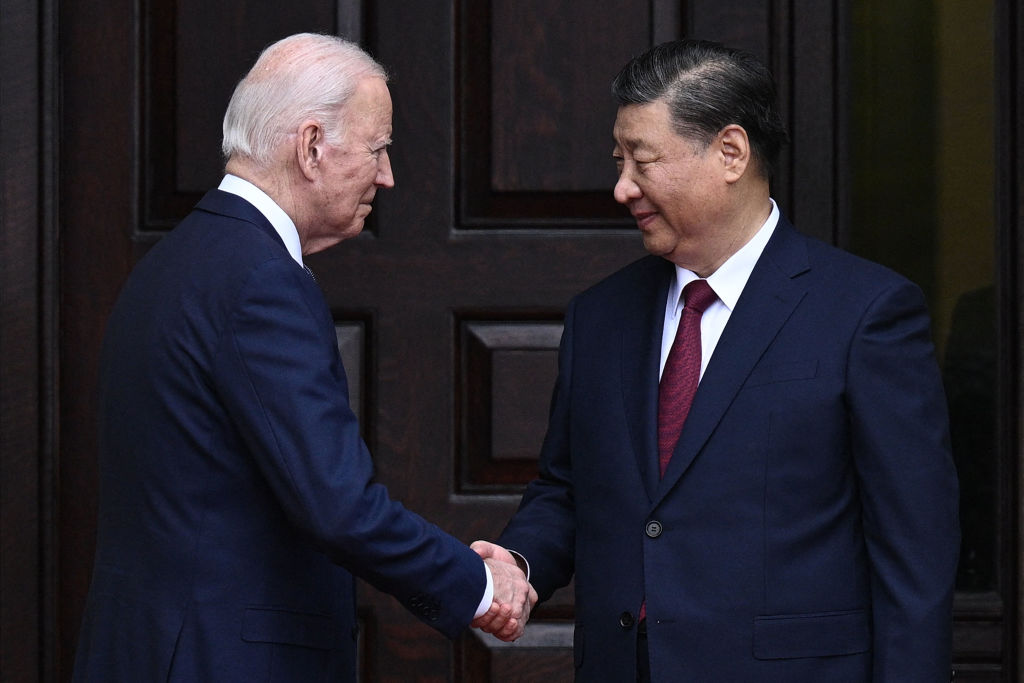
The future of US-China rivalry is not likely to become a cold war, nor a hot one. Rather, it’s more likely to be a simmer war, a new situation in which there is persistent competition in the economic, technological, and diplomatic domains while both sides avoid escalation.
A summit between the two countries’ leaders in November did not stem the deteriorating trend in the bilateral relationship, as shown by inclusion of measures directed against China in the United States’ 2024 defence authorisation act.
But the notion that US and China are in a new cold war is oversimplified. The Cold War between the US and the Soviet Union was possible because the two countries belonged to different economic systems. The cost of confrontation was limited. In 1989, when the Berlin Wall fell, the US exported $4.28 billion in goods to the Soviet Union and imported $709 million from it, inconsequential volumes for both economies.
That’s not the situation between China and the US. Even after a pandemic and amid threats of decoupling, trade and investment ties between the US and China remain significant. Furthermore, China is the largest source of international scientists in the US. Any effort to decouple from China would be disastrous for both nations and the world.
US–China ties have become more entrenched and multifaceted. Elites from both sides know well that they must work together towards solving some of the most intractable global issues. And US efforts to organise a coalition of like-minded countries to counter and pressure China has achieved little success, notably in Europe.
The chance of a country engaging in war reflects the costs and benefits it perceives, as well as the reputational implications for its ruler. Since China and the US both have nuclear weapons, the course of a war between them would be unpredictable. More importantly, China’s stagnation in political reform over the past decade has led to a loss of its development momentum, and its economic growth potential is likely to fall below 2.5% per year in the next decade. Its willingness to bear the cost of a war should be diminished.
So, a simmer war becomes more likely. In such a situation, the two sides would not escalate to the level of open warfare or direct confrontation. Rather, they would engage in prolonged, low-intensity rivalry—a simmering state of non-violent hostility.
A simmer war would be in line with the national interest of the US. It must maintain lasting opposition to its challenger to maintain loyalty of allies and strengthen its global primacy. Imposing economic and technological sanctions on China can also help bolster domestic unity among political elites and foster trust among the public towards the government.
A simmer war would also be in China’s interest. In the Sino-US zero-sum game, it must demonstrate a strong posture to warn such countries as South Korea and the Philippines against leaning towards the US.
Meanwhile, both sides have wider interests that demand strategic compromise. For example, a loss of cooperation with the US would harm the Chinese economy, potentially triggering a governance crisis for President Xi Jinping. The US, meanwhile, needs China’s help in addressing such global issues as climate change and arms control.
Further, Washington has major domestic issues that would be harder to address in the event of military conflict with China.
Washington aims to contain China’s abilities in strategic sectors that threaten US security. The US term ‘de-risking’ and Chinese references to ‘self-reliance’ have a similar connotation. Each country seeks to minimise its exposure to economic punishment by the other.
Tacitly agreeing to manage the simmer war is perhaps the greatest diplomatic challenge for the two countries. China needs to promise the US it will not seek regional hegemony and has no intent to challenge Washington’s global leadership. Simultaneously, the US must more strongly show that it does not seek to change China’s political system and will not stymie China’s efforts to expand economic opportunities.
The two great powers need to build a new framework for their relationship.

